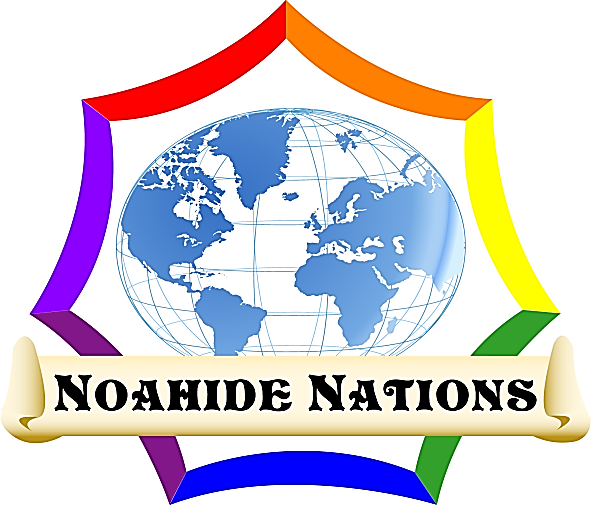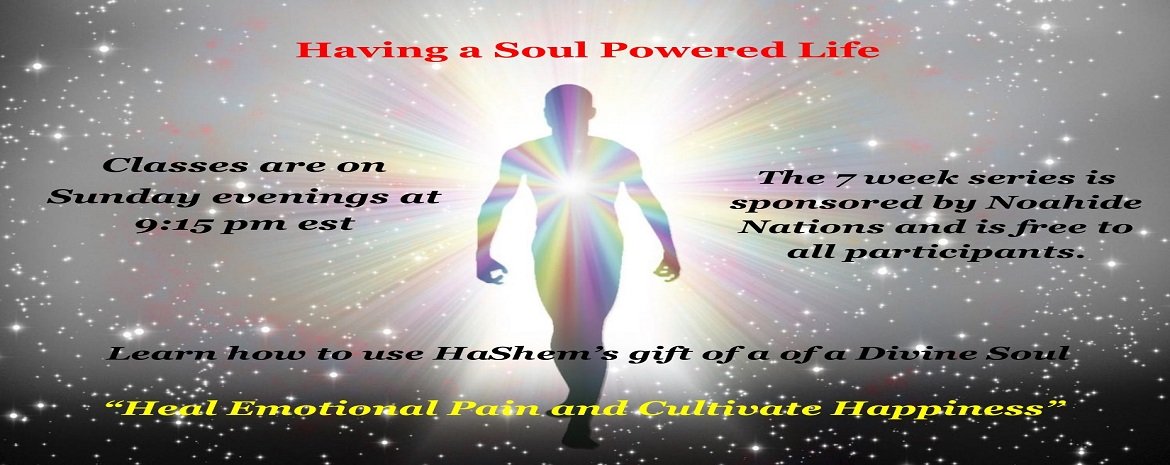
Is Moses Credible?
- Category: Noahide Laws
- Hits: 6619

IDOLATRY-5: Genesis: Is Moses credible?
Know your CREATOR, know yourself and know the difference
1: Questioning the validity of Genesis
Bible critics
Since ELoKiM stands for the truth, is the Story of CREATION as told by Moses, true?
Many scholars doubt it. What could Moses know 3500 years ago, about the Universe? So they say.
When Moses tells us that the world was created in just one week, what could he really know?
And when he tells us that CREATION happened 5000 years ago, well, could he know better?
Hence, the scholars say, Moses’ story is just another ancient myth.
Karen Amstrong, the famous author of the ‘History of G-d’ counts Moses’ Genesis among the bronze-age myths. His account is regarded not different from other stories of his time, told by the Mesopotamians, Egyptians, Greeks and the Canaanites.
Fundamentalists take this literally
The Biblical Fundamentalists, on the other hand, who swear to the truthfulness of every word of the Bible, hold that CREATION indeed took place 5000 human years ago, in just one regular week, exactly as told by Moses. They disregard all the scientific evidences to the contrary, as unreliable. Radioactive Carbon measurements are unreliable, they say, and the fossils don’t tell the truth, and archeology tells imaginary things. There are such fundamentalist in all the three monotheistic religions, Jewish, Christians and Muslims alike.
Most believers say:
Most people, however, tend to believe in the Bible yet feel uncomfortable when it comes to Genesis. They believe in modern science and its findings, yet they would not easily look down at the Biblical narrative. They tend to cope with this clash in several ways:
Leave this to the important rabbis
When I was in high school, my teacher told us (1) Look at Genesis is a metaphor (2) Focus on the Torah’s moral messages, rather than on the way she tells history (3) Leave the clash between Torah and Science to Torah sages. They know how to dissolve it.
The sad result of this approach is that most people shy away from the clash and hide it underneath the carpet. None of my sons in laws, for instance, would be familiar with the story of Genesis, though they know the rest of the torah by heart. They simply ignore it. If I ask them what was born on the Third Vs Forth Days they would hesitate to answer by heart. They usually do not include Genesis in their daily Torah study.
The risks of ignoring the clash
But such an approach of ignoring the clash between Science and the Torah is enormously risky. If you don’t believe in the first Chapter of the Torah, taking it with salt and paper, then deeply in your heart you would doubt everything else that the Torah says. Would you believe in Noah’s Flood? Would you believe in te story of the Exodus, or in Sinai revelation? Would you look at these stories as a myth?
ELoKiM stamped it 32 times!
The apparent clash between the Torah and Science is a real challenge for the thinking believer. Why? Because the story of Genesis is studded with ELoKIM’s Name, which appears in the text 32 times! No other chapter in the Torah carries the Name of ELoKiM so many times in just a few verses!
And when we remember that each time ELoKIM’s Name appears in the text, a stamp of truthfulness is given, it means that the story of Genesis MUST be true according to Moses. Whoever doubt it, would doubt also the existence of ELoKiM! Hence if Science discredits the Story of Genesis, it discredit also the Name of ELoKiM!
Why then did Moses bother to write the story?
Moreover, if we see Moses as a true prophet, why did he bother to write Genesis at all? Couldn’t he foresee that a generation would arise and discover that the story is unfounded? Why did he place this storyt at the beginning of his five books? If the story is discredited, the entire five books are discredited as well! You do not need to taste more than one spoon from the soup, to know that it is completely and wholly spoiled.
So when we compare the Torah’s story with the Scientific one, we realize that the stakes are enormous. If we fail to show the truthfulness of Moses’ story, we’ve failed to defend the entire Torah! On the other hand, if we prove the validity of Moses’ story, we’ve supported the validity of the entire Torah. I know, pious people who believe in the Torah blindly, do not need to validate the story of Genesis. But they don’t appreciate it either.
2: Genesis: another myth?
The Egyptian myth of CREATION
Having grown up in Pharaoh’s daughter home, Moses must have been familiar with all the stories about CREATION told in his time. He must have met many ambassadors and traders from all over the world, and must have heard from their stories and believes.
Here is what the ancient Egyptians believed in Moses’ time. I took it from Karen Amstrong’s book:
The Egyptians believed that the world was created when a male god named Rah impregnated a female goddess named Nun (‘water.’) Being jealous of his son, Rah slashed Nuns’ belly, killed the embryo, cut off its testicles and dumped them into the Mediterranean Sea near Aco. The lamenting mother-goddess then went down into the water, retrieved her sons’ testicles and resurrected him out of these testicles. From these testicles the world was then created. The theme of a father-god killing his son was rampant in ancient myths, till the Roman time and the birth of Christianity. Moses, having been raised in Pharaoh’s house, must have known this story by heart. After all, this was the core of the Egyptian formal religion in his time.
Passionate story, yet not compatible with science
We can imagine how much excitement this story of death and resurrection stirred up among the Egyptian believers. We know that they paraded in the streets chanting hymns for their god’s glory. They lamented the death of God’s son, and hugged each other with joy to the news of his resurrection from his testicles. Their philosophers saw a deep meaning in the story, connecting it with th struggle between Fall and Winter, against Spring and Summer. Their poets composed deep and rich lyrics to the story’s glory, and Pharaoh built impressive temples and erected awesome statues for the god’s glory. We may sympathize with the Egyptians, but one thing we can be sure: There is absolutely no connection between these myths and our Scientific account of CREATION. Science can’t agree with the Egyptian’s narrative even after a long attempt.
The Greek Story of CREATION
Moses must have also known the Greek stories about the history of the world. Their stories were in line with the Egyptian’s one. The Greek in Moses time believed that a male god named Uranus mated with the goddess of Earth, Gaia, so that she gave birth to the famous Titans. The father-god Uranus was jealous of his children and forced them back into Gaia’s womb, causing her much agony. Whenever you feel the earth trembling under your feet, it is Gaia twisting in pains. The youngest Titans, the brazen Cronus, had the courage to stand up against his father. Armed with a sickle, he waited in his mother womb. Next time Uranus penetrated Gaia, Cronus cut off his father’s sex organ and threw it to the Sea. Here the Greek differed from the Egyptians who said the father threw the son’s testicles into the sea. The Greek in contrast said that the son threw his father’s pennies into the sea. This way, the Greek continued, the Titans escaped from Gaia’s womb and founded the Earth. Or, the Earth flourished. This is the story of CREATION as told by the Greek, according to Karen Amstrong’s book.
Again, you can say that these myths are passionate and that they do reflect the life style of the ancient Greek and Egyptians. You can admit that these stories are very emotional and they go deep into the questions of life and death, birth and death, family jealousy and the like. But one thing you CANNOT say : that these stories have any commonality with our MODERN scientific understanding of CREATION. These stories are definitely incompatible with our Science.
Other ancient myths
Other nations around the globe, according to Karen Amstrong, had similar stories to tell about CREATION. The Chinese, Japanese, Persians and Indians had also stories full of jealousy, sexual perversions and bloody power struggle between the gods. But they are all mythical, not factual. They are all incompatible with our modern science.
Now let’s observe Moses story and compare it to the ancient myths. Can he be counted as another myth?
3: Moses’ story compared to the ancient’ myths
Moses story is clean
Without entering into details, the first thing we notice about Moses’ story is that it is ‘clean.’ It lacks any reference to violence, Jealousy, sexual perversion or power struggle. In Moses story, no father-god kills his son-god, and there is no son cutting off his father’s penis. Moses’ story is surprisingly clean and factual. It arises no passion. No one would parade in the streets singing hymns to its glory. No one would hug his friend telling him the good news that the CREATOR hung the luminaries in the sky on the fourth Day! This alone sets Moses’ story apart, from all the other ancient myths.
Moses sees an order in CREATION
Secondly, Moses sees CREATION as done in stages or Days. Some creatures were born early, and others later.
Thus the Dry Land appeared first and then the Vegetation and then Fish then Birds then Crocodile then Cattle then Beasts then Crawling creatures and finally Man. This too sets his story apart from all other ancient myths, since no one else in Moses’ time had any conception of an ORDER of creatures in CREATION.
To Pharaoh, for instance, the animals roamed with no order. They are a given fact of nature. They are there for hunting and taming. They are there for his pleasure. The same approach applies to all ancient cultures. No one, not even the scientific Greek, perceived any ORDER among the creatures.
So, Karen Amstrong, how could you list Moses’ story among the myths of his time? Don’t you see the enormous difference?
Next we need to find out whether or not Moses’ story concurs with our scientific narrative about the history of the world.
This article was originally posted at http://www.noahidesevencommandments.com/detail.asp?iArt=289&iType=32


 French (FR)
French (FR)  English (UK)
English (UK) 




